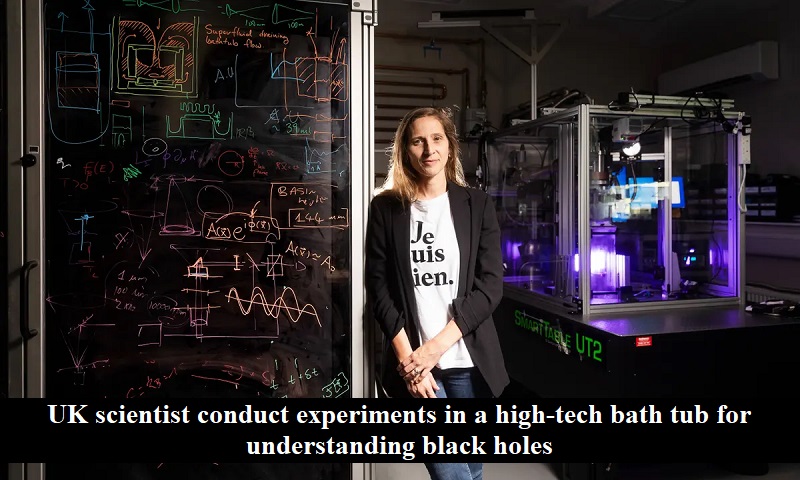
Professor Silke Weinfurtner at the University of Nottingham is conducting groundbreaking experiments to understand the complex laws of physics governing black holes. Her research involves using a high-tech bath tub setup as an analog to explore the behavior of black holes.
According to The Guardian, Professor Weinfurtner is a pioneer in the field of analogue gravity, which draws parallels between the mathematics of fluid systems on Earth and the extreme environments found in the universe. By studying phenomena in the bath tub setup, she aims to unravel the mysteries of black holes.
The team has already used the bath tub setup to investigate Hawking radiation, which is the theoretical process through which black holes gradually evaporate and disappear. Now, they are developing a more advanced simulator to gain deeper insights into black hole behavior.
The idea behind the experiment is that the flow of fluid down a plughole mimics the curvature of spacetime caused by the intense gravitational field of a black hole. Professor Weinfurtner emphasizes that the fundamental principles of physics are universal, and if the mathematics align, physics should follow suit. These analogues provide an opportunity to investigate the interaction between gravitational fields and quantum fields, which has been a quest for physicists for a century.
In the new bath tub setup, a tiny vortex within a bell jar of superfluid helium represents the black hole. The superfluid helium, cooled to an astonishingly low temperature of -271°C, exhibits quantum effects. Unlike water, which can spin at any speed, the helium vortex can only swirl at fixed values. Ripples on the helium’s surface, tracked by lasers and a high-resolution camera, simulate radiation approaching a black hole.
The upcoming investigations will focus on a phenomenon called superradiance, which predicts that radiation near a black hole can be deflected outwards with more energy than it had upon entry. This leads to energy extraction and a gradual slowdown of the black hole’s rotation. While this phenomenon has only been theorized, Professor Weinfurtner believes that a rotating black hole may exhibit quantum effects similar to those observed in superfluid helium.
Furthermore, the simulator could help predict Hawking radiation and gravitational wave signals generated by merging black holes, which can be detected by instruments like the LIGO gravitational wave detector.

Post Your Comments